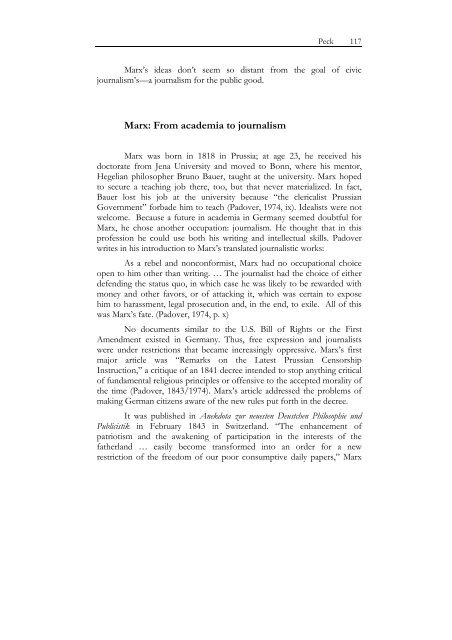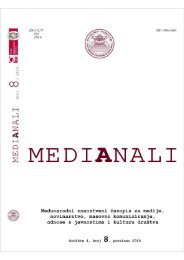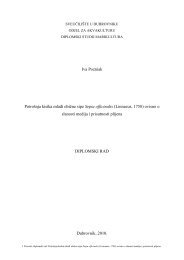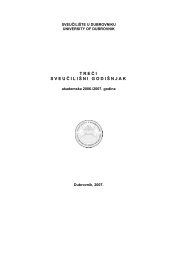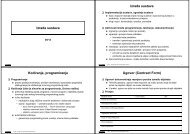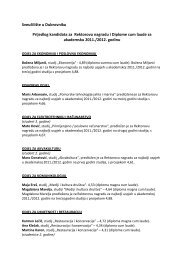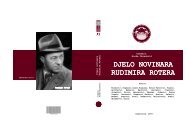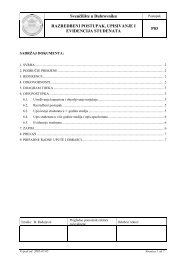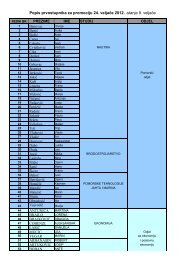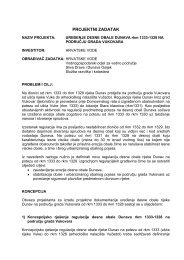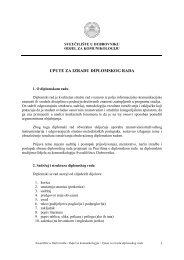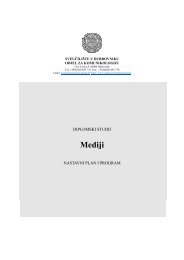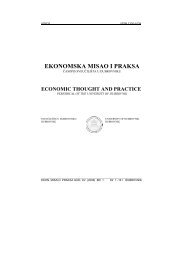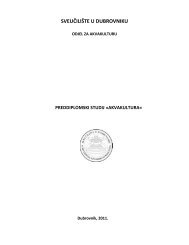You also want an ePaper? Increase the reach of your titles
YUMPU automatically turns print PDFs into web optimized ePapers that Google loves.
Peck 117<br />
Marx’s ideas don’t seem so distant from the goal of civic<br />
journalism’s—a journalism for the public good.<br />
Marx: From academia to journalism<br />
Marx was born in 1818 in Prussia; at age 23, he received his<br />
doctorate from Jena University and moved to Bonn, where his mentor,<br />
Hegelian philosopher Bruno Bauer, taught at the university. Marx hoped<br />
to secure a teaching job there, too, but that never materialized. In fact,<br />
Bauer lost his job at the university because “the clericalist Prussian<br />
Government” forbade him to teach (Padover, 1974, ix). Idealists were not<br />
welcome. Because a future in academia in Germany seemed doubtful for<br />
Marx, he chose another occupation: journalism. He thought that in this<br />
profession he could use both his writing and intellectual skills. Padover<br />
writes in his introduction to Marx’s translated journalistic works:<br />
As a rebel and nonconformist, Marx had no occupational choice<br />
open to him other than writing. … The journalist had the choice of either<br />
defending the status quo, in which case he was likely to be rewarded with<br />
money and other favors, or of attacking it, which was certain to expose<br />
him to harassment, legal prosecution and, in the end, to exile. All of this<br />
was Marx’s fate. (Padover, 1974, p. x)<br />
No documents similar to the U.S. Bill of Rights or the First<br />
Amendment existed in Germany. Thus, free expression and journalists<br />
were under restrictions that became increasingly oppressive. Marx’s first<br />
major article was “Remarks on the Latest Prussian Censorship<br />
Instruction,” a critique of an 1841 decree intended to stop anything critical<br />
of fundamental religious principles or offensive to the accepted morality of<br />
the time (Padover, 1843/1974). Marx’s article addressed the problems of<br />
making German citizens aware of the new rules put forth in the decree.<br />
It was published in Anekdota zur neuesten Deustchen Philosophie und<br />
Publicistik in February 1843 in Switzerland. “The enhancement of<br />
patriotism and the awakening of participation in the interests of the<br />
fatherland … easily become transformed into an order for a new<br />
restriction of the freedom of our poor consumptive daily papers,” Marx


